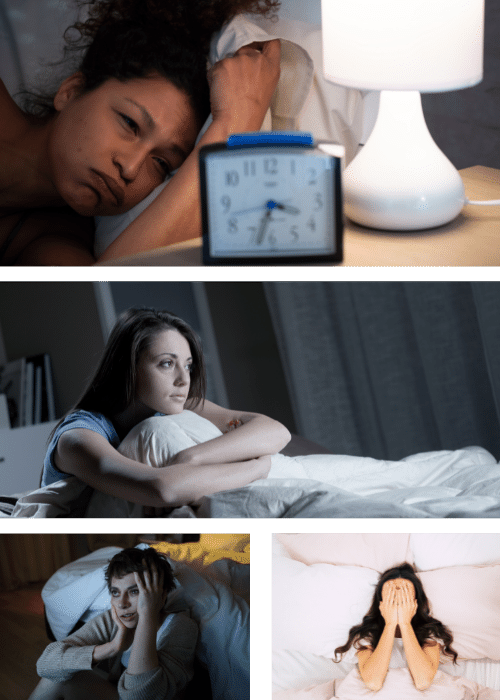Insomnia

What is insomnia?
Insomnia is the most common sleep complaint. it involves:
- Difficulty falling asleep
- Difficulty staying asleep through the night
- Waking up too early in the morning
This common sleep disorder can be divided into two types:
- Acute insomnia occurs for only a short period and is most often related to specific event or situation such as stress, travel related circadian rhythm changes.
- Chronic insomnia is the term used when you experience insomnia at least 3 nights a week for at least 3 months.
What are the symptoms?
Insomnia is a night and day problem. During night, you have restless sleep, and during day you may have:
- Fatigue or sleepiness
- Attention, concentration, and memory problems (cognitive impairment)
- Performance issues at work or school
- Mood disorders like anxiety, depression, irritability
- Impulsiveness or aggression
- Motivation problems
- Errors or accidents
- Worry and frustration about your sleep
- Increased insulin resistance/worsening of diabetes
What causes insomnia?
- Insomnia can run in family.
- Medical conditions: restless leg syndrome, chronic pain etc.
- Major life change, stress, divorce, job loss.
- Hormonal issues like PMS, Menopause
- Coffee and certain medications
- Depression or anxiety
- Shift work, travel, and change of environment
- Poor sleep hygiene
How is it treated?
We offer two types of treatment:
Medication: Sleeping pills that work on two sides of insomnia.
Sleep inducing pills like Ambien, Lunesta etc
Wakefulness reducing pills like Belsomra
Cognitive behavior therapy of insomnia CBT-I:
CBT-I helps you identify and modify the behaviors that are causing insomnia. You will learn to retrain your body and mind to reclaim good nights sleep.
Techniques learned during CBT-I?
You will new habits and skills to overcome insomnia.
- Keeping a sleep diary: You will keep track of what time you go to bed, how long it takes you to fall asleep, how many hours you log and what you eat and drink in the evening. You will be asked to continue keeping a sleep diary throughout treatment to see how you are progressing.
- Creating a sleep schedule (sleep restriction): People with poor sleep efficiency, meaning too much time in bed being awade. By reducing the amount of time you spend in bed trying to sleep, your body will learn to be more efficient when it’s time to fall asleep.
- Improving bedtime habits: You’ll be instructed on how to eliminate non sleep promoting things from your bedtime routine. These things may include reading in the bed, TV, electronics, caffeine and alcohol, having a clock on your bedside table.
- Weaning off medications: If you are taking any prescription or over-the-counter sleep aids, CBT-I will help to slowly wean you off .
- Addressing anxiety: You will use tools to calm your mind.
- Learning relaxation techniques: Using exercises that relax your body can also help calm your mind. Such tools include progressive muscle relaxation, deep breathing and meditation.
How effective is CBT for insomnia?
CBT-I has been shown to be more effective and longer lasting benefits compared to sleeping pills.
We have expertise in guiding you to use online CBT-I like Sleepio
